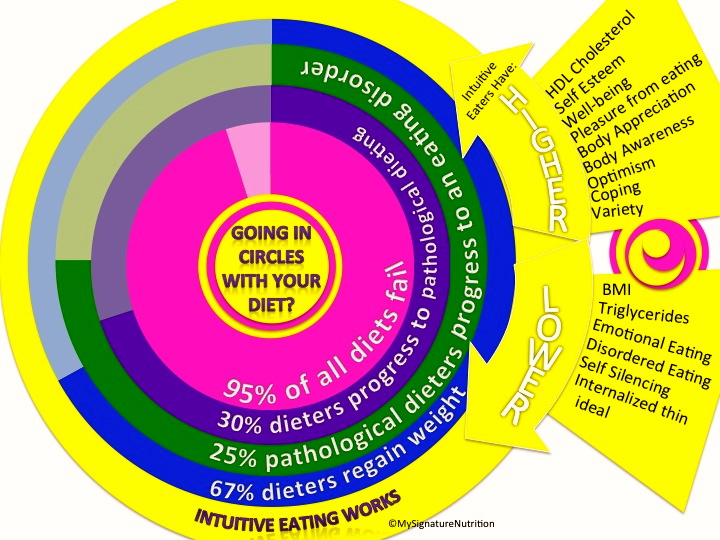New Years Resolutions
January 3rd, 2013 by Sara Upson
Happy 2013! As we begin the New Year many people resolve to make changes for a better future. Resolutions can be quite broad but according to research anywhere from 40-80% of Americans make a similar resolution. I don’t think it takes much guessing to figure out what that resolution is, but if you guessed weight loss, getting fit, or getting toned- then you would be correct.
At first glance, it seems great that the vast majority of Americans are making this resolution. After all, our nation has a weight problem. However let’s look closer at that resolution and spend a little bit of time thinking about what really happens with weight loss resolutions…
Resolution Failure Rate
Sadly, for all resolutions (not just weight loss) there is a dismal failure rate, so don’t feel bad if you don’t keep your resolution. You’re actually in company with the majority of the population as 92% of all resolutions fail! That number is stunning; only 8% of the population (that make resolutions) actually keeps their resolution.
Diet Failure Rate
Diet failure rate is even higher than the resolution failure rate. According to research, 95-99% of all diets fail. You might lose weight on your diet, but only temporarily. According to research 67% of people regain the lost weight plus more within 1-5 years. These frequent weight changes (or yo-yoing weight) can actually have a negative impact on your health. A recent study reported that frequent weight changes have a significant negative impact on cardiovascular health.
Think about it, if diets were really working why wouldn’t we have solved the obesity epidemic already? Why wouldn’t the weight of the nation be decreasing? Why wouldn’t the dieting industry be shrinking instead of growing into a $60 billion dollar industry?
Other dieting dilemmas
There are additional risks to dieting besides just diet failure. According to research 30% of dieters will progress to pathological dieting. You might know someone like this- they are always on the latest fad diet, they know all about calories, fats, and carbs, they are unhappy with their eating, and divide their days into good or bad based on their weight and food intake. 20-25% of pathological dieters will progress to a full-blown eating disorder (anorexia, bulimia, binge eating disorder, or eating disorder not otherwise specified). I think a prime example of this is Kai Hibbard from the Biggest Loser Season 3. Kai lost a significant amount of weight on the Biggest Loser and also developed an eating disorder. This progression happens more frequently than you would think. In fact, dieting is the number one risk factor for an eating disorder, and dieting in adolescents is even a predictor for a future eating disorder.
Diet Disconnection
Besides the dismal failure rates, dieting also does people a major disservice. It teaches you to disconnect from your body and follow an external set or rules. These rules do not take into regard your personal hunger and fullness cues, your preferences, your schedule, or your needs. Diets violate your personal boundaries and tell you what you should/should not do without regard to you. Diets teach you to not listen to your body and actually make it harder to care for and nourish yourself. Even seemingly more “helpful” diets still violate your boundaries. For example, what happens if you run out of all your points for the day, but you are still hungry?
What happens when the diet ends?
The biggest question though with a weight loss/ diet resolution is what happens when the diet ends? A couple days ago a friend was telling me about a 42-day diet program their insurance company was sponsoring. All I can wonder is, what happens on day 43? Diets have a specific beginning, middle, and end; and what happens when they end? Most people gain the weight back. Unless you are willing to make a commitment to healthier behaviors, weight loss will only be temporary. Even more shocking is that with crash diets you typically lose muscle not fat. That means on day 43, when you go off your diet and revert back to your normal eating habits you have less metabolically active tissue (your metabolism has slowed down). This means (in a nutshell) the weight you lost from muscle tissue is eventually replaced with fat- metabolically less active tissue. This is not a health improvement.
What can you do?
Diet and resolution failure doesn’t mean that you are stuck at your current weight. You can make changes but focus on health- not weight. Even if you change your health behaviors and do not lose weight, you still improve your overall health status. So if you are thinking about trying something this year I encourage you to try Intuitive Eating. Intuitive Eating is not a diet; it is a philosophy that teaches you to become the expert of your own body. It teaches you to eat when you are hungry, and stop when you are full. It helps you create peace with food so that you can stop eating when you are full and you don’t have the desire to eat when you’re not hungry. It is also flexible, it gives you permission to eat all foods, allows for taste nutrition and enjoyment with your food. It teaches body appreciation, and over time naturally allows your weight to go where it needs to go. Here’s the amazing thing. You cannot fail at intuitive eating. All of the setbacks and challenges become learning experiences in the process to becoming an intuitive eater. Intuitive Eating doesn’t have an end because you learn to care for yourself and your health. It becomes a lifelong process that provides peace, satisfaction, and enjoyment.







Leave a Reply